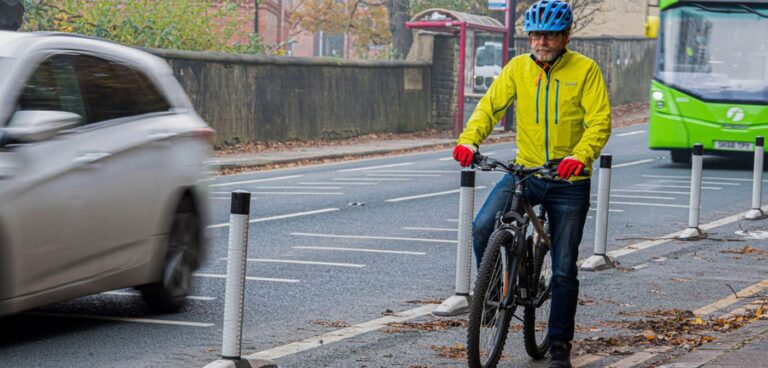Universal access to accessible, affordable and sustainable travel choices in Leeds will be considered by senior councillors next week.
Leeds City Council’s draft Connecting Leeds Transport Strategy aims to tackle climate change, deliver inclusive growth, and improve the health and wellbeing of Leeds residents.
Six so-called ‘big moves’ outlined in the strategy have been designed to act as an action plan to create an affordable and integrated transport network across the city that isn’t reliant upon the private car.
According to the council, integration of more walking and cycling into daily travel habits, alongside enhancement of public transport, will help to reduce congestion, continue to improve air quality and lessen the impact on the environment when accessing education, employment, leisure opportunities and local services.

The strategy aligns with the city’s ambition to achieve a net-zero carbon target by 2030 as well as deliver a low-carbon mass transit network in partnership with West Yorkshire Combined Authority. City-wide consultations are planned for early 2021 in a Covid-safe manner.
The background and targets for the transport strategy will see the council work toward its ‘Climate Emergency’ carbon targets by 2030 and ‘Vision Zero’ for no one to be killed or seriously injured on roads in Leeds by 2040. Furthermore, by 2030, travel mode choices need to change to meet these targets, said the council.
Councillor Lisa Mulherin, Leeds City Council’s executive member for climate change, transport and sustainable development, said: “Moving our transport system towards a more accessible, active travel and public transport focused network will allow us to achieve the Connecting Leeds vision of a city where a car is not required to meet mobility needs.
“We know that people are willing to make a switch to electric vehicles, use public transport more, reduce trips by car and walk, wheel or cycle for shorter journeys. But achieving net zero carbon by 2030 will require even bigger changes.”





